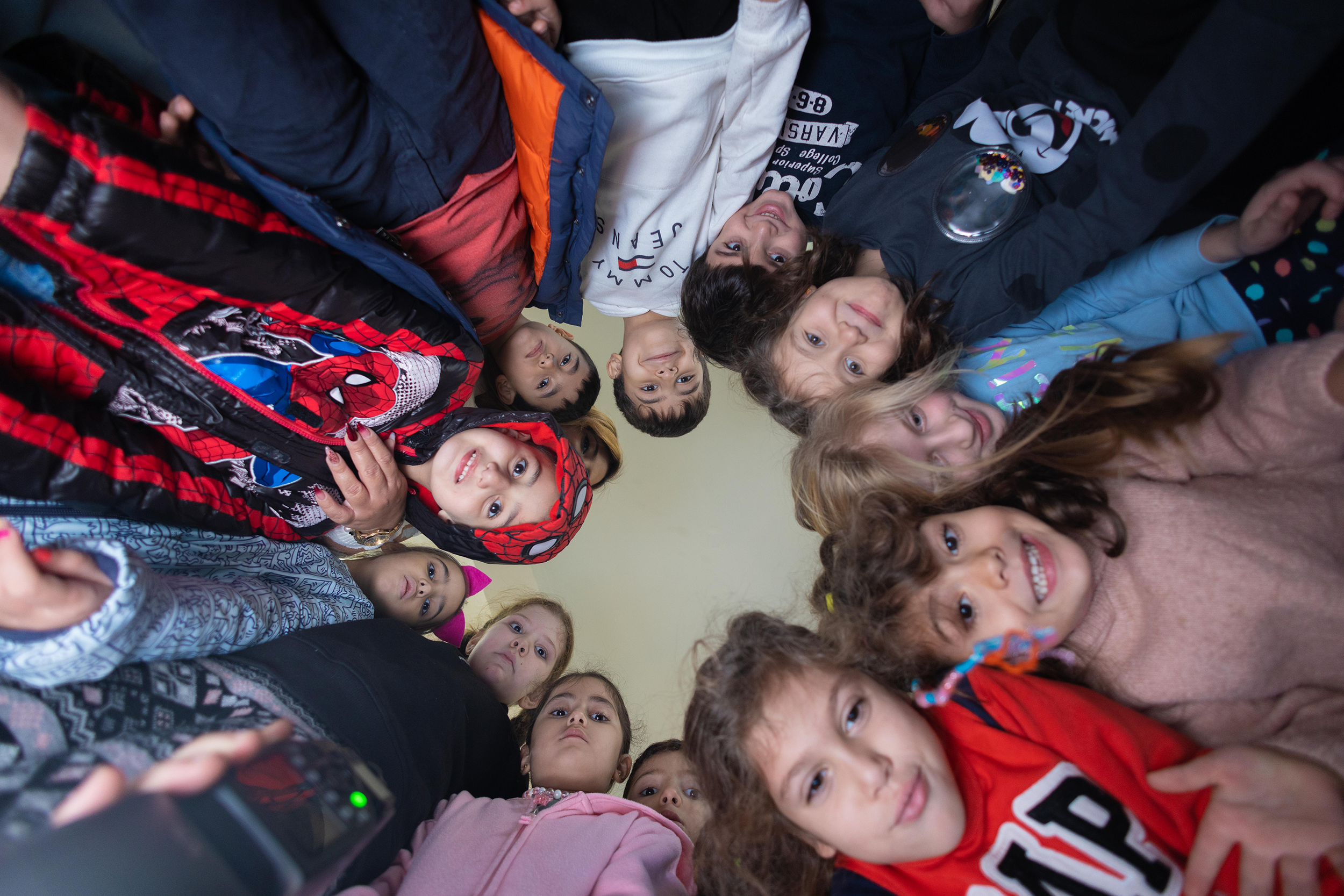
A 21st century
education.
About the
IB-PYP.
-
Eastwood International School is officially an International Baccalaureate Primary Years Programme (IB-PYP) authorized school. The International Baccalaureate Primary Years Programme is designed for students between the ages of 3 to 12 years. Like its high school counterpart, the IB Diploma Program, it also aims to bring educational standards into the 21st Century.
-
There is a strong realization among modern educators that society today is increasingly interconnected through globalization and technology. Current generations are approaching world problems collaboratively between countries, and across cultures. And, issues affecting humanity are not what they were 50 years go - not even 20 years ago. Nor are the tools and technologies used to solve them and understand them.
And so, our teaching methods need to adapt for that change. Our curricula must prepare children to enter the ‘real world’ seamlessly. -
It may sound cliché, but the IB-PYP recognizes that, if future generations are to accomplish ‘world peace,’ they need to be brought up with the mindset, skill and awareness to do so. This starts at the individual level, and with personal relationships.
From there, these ‘rivers and streams’ of social skills lead to ‘oceans’ of acceptance, curiosity and responsibility. By filling in the rest with up-to-date knowledge, we get innovation and creative solutions - the kind that can only be accomplished by working together. And so, back to our focus on the whole child (as we always say), the IB-PYP curriculum does more than teach facts, or enforce memorization.
For years educators and citizens alike have noted that the traditional method of teaching needs a transformation. Our kids are not going to be assembly-line workers; they are entering ‘think tank’ economies, with surmounting problems to face. -
Before implementing the IB program for our high school students (our first phase in becoming a full IB school), Eastwood already embodied many of the values, concepts and ‘ways’ of the IB approach to education. This was noted in our week-long appraisal process, in which we received excellent commendations for our efforts and existing frame work
However, each organization - and even an individual teacher - is able to apply the core principles of elementary school curriculum in their own way. With that said, below are some of the ways in which we stand out as a school in Beirut:
Continuous teacher training and development It goes without saying that the professional training of a school’s teachers, as well as its leadership and culture, can undoubtedly have an impact on students’ experiences. Our own faculty receive up to 110 hours of professional development a year. They also participate in a ‘flat’ hierarchical management structure. This allows for idea-sharing and collaboration, which is also greatly encouraged. That is, teachers in the classroom have a ‘seat at the table’ when deciding on school policies.
Innovative school-wide teaching method, and a ‘think tank’ approach to education Eastwood International School has not only always been progressive in its ideology towards educational standards. It has also actively sought ways to bring its classrooms up-to-speed with the rest of the world. We do this beyond the requirements set forth by the International Baccalaureate Organization.
As an organization, we are not afraid of change. Yes, frequent change can disrupt the ‘norm.’ But without experimentation, and constant curiosity on the part of leadership, where would any school be today, or in the future? How can we remain effective when teaching our young children for tomorrow? We always keep the following thought in mind: we will be ‘releasing’ students into a world we’ll barely recognize 10 years from now. So, we have to stay ahead.
The IB-PYP recognizes that, if future generations are to accomplish ‘world peace,’ they need to be brought up with the mindset, skill and awareness to do so. This starts at the individual level, and with personal relationships.
-
The IB-PYP is the only program we use at our elementary school. It covers our early learning center in Beirut, as well as all elementary grades up to the end of Elementary school (Grade 5). Anyone who is accepted and enrolled at Eastwood International School is automatically placed into the program.
-
How do children learn differently with
the IB-PYP at our school in Beirut?Our primary work is to teach children how to teach themselves; to teach them how to learn and think and do without us; how to reflect on themselves as learners, as individuals, and as members of multiple, interconnected communities. And so, at our Beirut elementary school, learning is very practical, applicable and enjoyable. The PYP engages the student in the following ways, which are considered modern in thought, practice and focus when compared to traditional teaching goals:
Self-directed learning
The IB-PYP encourages self-directed learning, based on student interests, in collaboration with the teacher. We recognize that each child comes with a unique set of hopes, dreams, passions, backgrounds, talents, needs, knowledge, and experiences. Their entire makeup can contribute to their individual advancements, without having to wait for others to catch up to them, or vise versa. In other words, the child is seen as competent and capable of investigation and problem solving, as long as they are driven and motivated to do so. In our curriculum, students are thus often the creators of their own projects, and not the executors on a task that is given to them. Teachers and students construct their studies together, then reflect on the process and direction of their learning along the way. This fosters independence, and a sense of taking responsibility for their own work.
Transdisciplinary studies
The PYP is also is heavily focused on transdisciplinary studies, where the lines between subject areas are dissolved, just as they are in the real world. For example, students may be exploring the concept of businesses being human ventures that can bring profit or loss. In this overall scheme, the following disciplines are taught:
• Math and coding: students learn how data is handled, and how money is transacted.
• Language Arts: students practice their writing by articulating business plans.
• Social Studies: students learn about the economical activities of businesses, the types of businesses, and the concepts of supply and demand in economics.
• Science: students learn about the use of natural resources in making products.
• Performing Arts: students may look into the movie production industry as a business.
• French and Arabic: students learn the importance of acquiring the knowledge of customers and suppliers.
• Physical Education: students learn about sports-related businesses, such as how sports equipment is bought and sold. -
In order to mimic the ‘real world’ as much as possible, students at our elementary school in Beirut are involved in their community for much of their learning. Their learning experiences draw on all disciplines to address, investigate, or solve actual issues in the school, or in their local or global community.
Their “community,” at this age, can be the school, their neighborhood, their group of friends, their extracurricular organizations or other places where their own actions make an impact on others. We believe our children are not citizens-in-waiting. They can use their learning - today - to participate in meaningful action within these communities.
To that end, students in our elementary school program regularly go ‘out into the field’ to study ideas or topics as they truly are. For example, they go to fossil quarries, museums, ancient ruins, airfields, mountains, rivers, and government buildings; anywhere that will further their understanding of a unit they are exploring. We aim to provide for the acquisition of meaningful, applicable knowledge.
Students also meet with professionals in various fields. These can be pilots, water treatment experts, mountain climbing teams, architects, authors, firefighters or government officials. We engage with these professionals so that students can conduct interviews, or seek advice on how to take action on a particular issue.
There are no limits on the number of field trips our students take each year. However, on average, we take one trip per unit, which can be at least six field outings per year. -
As with all IB Primary Years Program schools around the world, our students participate in a yearly, 9 week, “unit of inquiry.” This culminates in what is called the “PYP Exhibition.”
The “unit of inquiry” is a learning experience where children decide on a research project they will do as a team, and with their teachers acting as mentors. The children are encouraged to inquire into real-life matters in local and international communities. They design their approach, the concepts they will explore, the central ideas of the unit, and the action they will take as a result of their research.
This approach and these explorations, quite naturally, are trans-disciplinary in nature.
Through powerful integration and an emphasis on inquiry, the boundaries between subject areas become bridged again. Children use knowledge beyond, and between, those boundaries to solve problems. They answer the questions they themselves have developed - the very questions that drove their inquiry. At the end of it all, the children then present their projects to parents, and the school community, in a celebratory event. -
Before implementing the IB program for our high school students (our first phase in becoming a full IB school), Eastwood already embodied many of the values, concepts and ‘ways’ of the IB approach to education. This was noted in our week-long appraisal process, in which we received excellent commendations for our efforts and existing frame work
However, each organization - and even an individual teacher - is able to apply the core principles of elementary school curriculum in their own way. With that said, below are some of the ways in which we stand out as a school in Beirut:
Continuous teacher training and development It goes without saying that the professional training of a school’s teachers, as well as its leadership and culture, can undoubtedly have an impact on students’ experiences. Our own faculty receive up to 110 hours of professional development a year. They also participate in a ‘flat’ hierarchical management structure. This allows for idea-sharing and collaboration, which is also greatly encouraged. That is, teachers in the classroom have a ‘seat at the table’ when deciding on school policies.
Innovative school-wide teaching method, and a ‘think tank’ approach to education Eastwood International School has not only always been progressive in its ideology towards educational standards. It has also actively sought ways to bring its classrooms up-to-speed with the rest of the world. We do this beyond the requirements set forth by the International Baccalaureate Organization.
As an organization, we are not afraid of change. Yes, frequent change can disrupt the ‘norm.’ But without experimentation, and constant curiosity on the part of leadership, where would any school be today, or in the future? How can we remain effective when teaching our young children for tomorrow? We always keep the following thought in mind: we will be ‘releasing’ students into a world we’ll barely recognize 10 years from now. So, we have to stay ahead.
The IB-PYP in details.
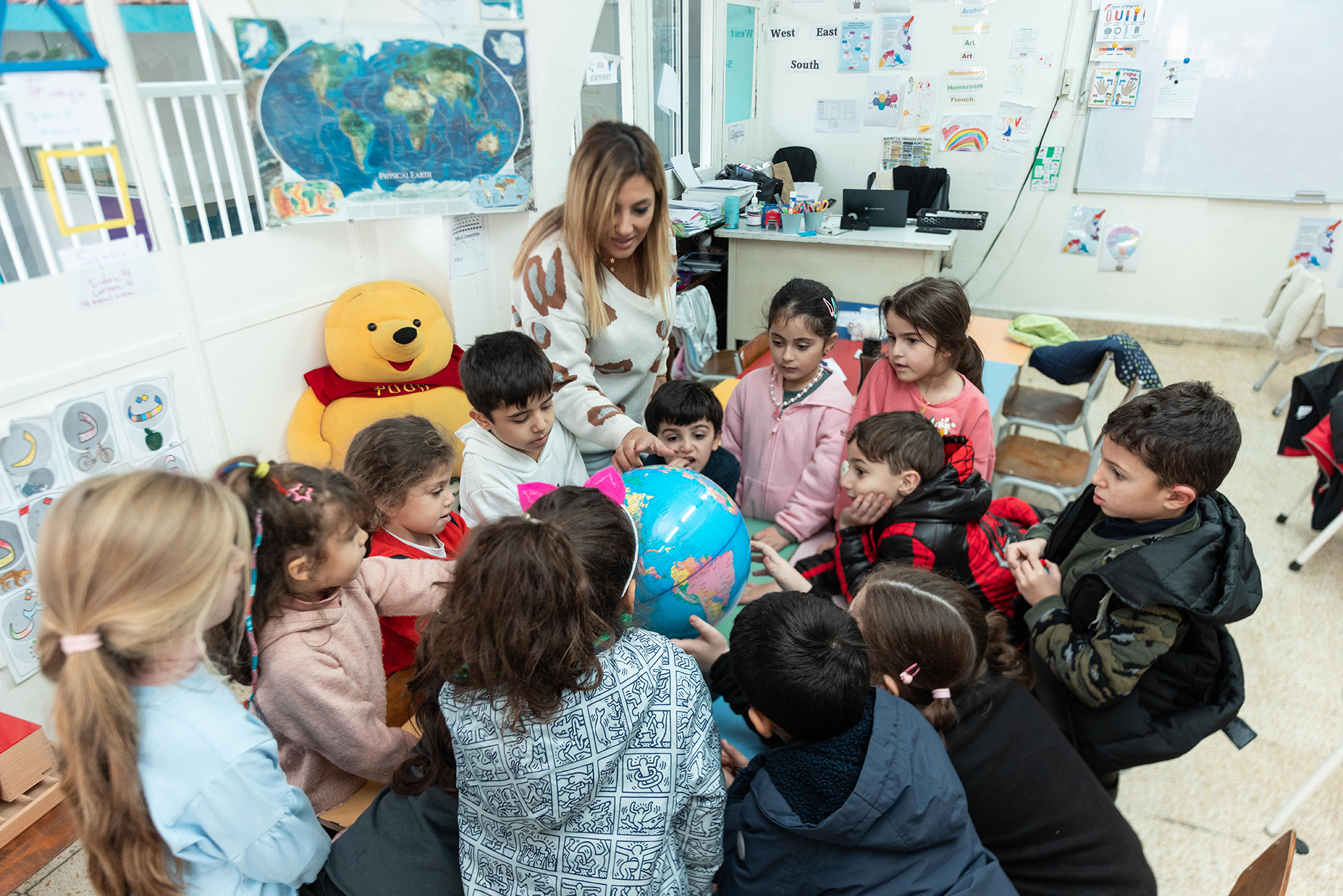
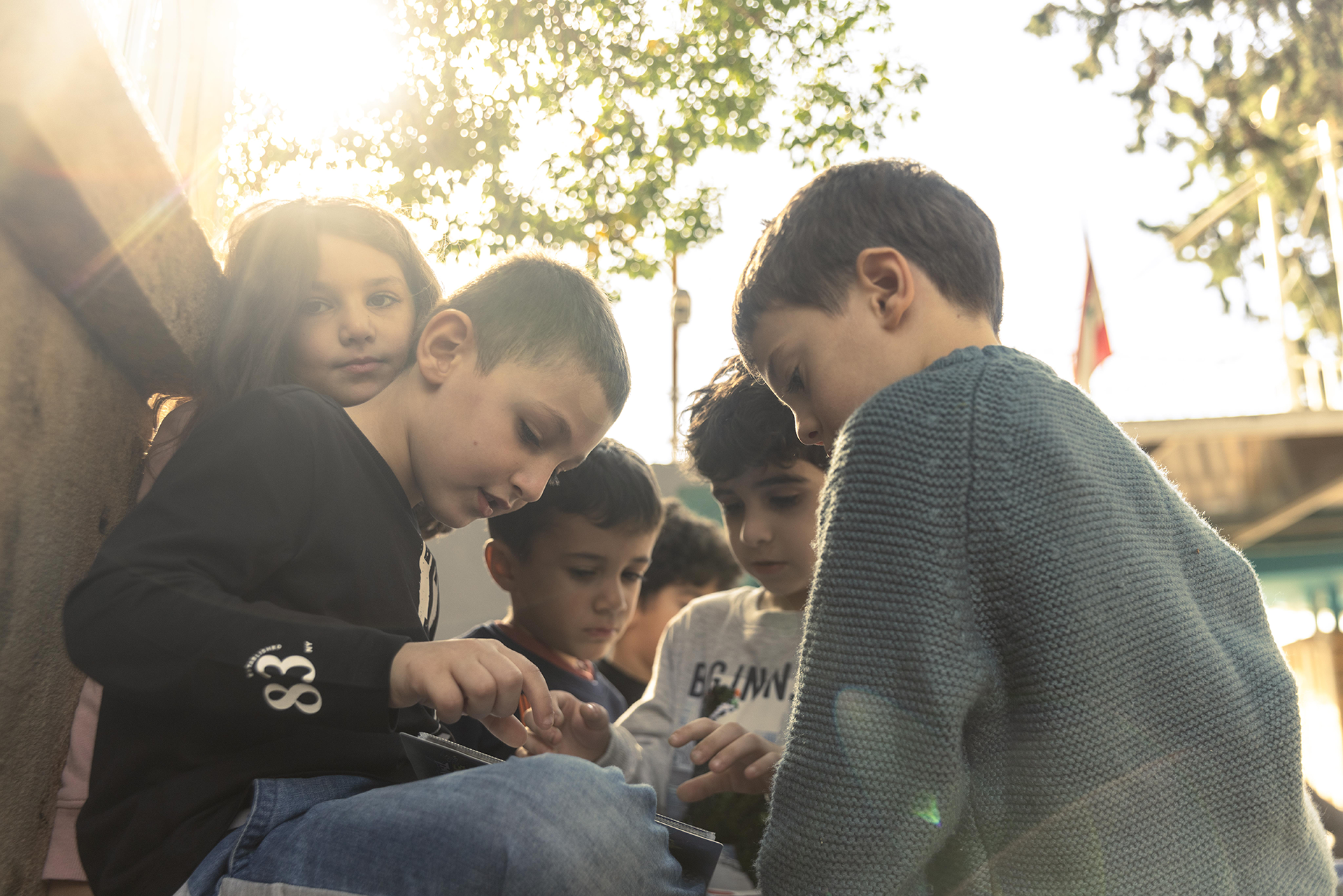
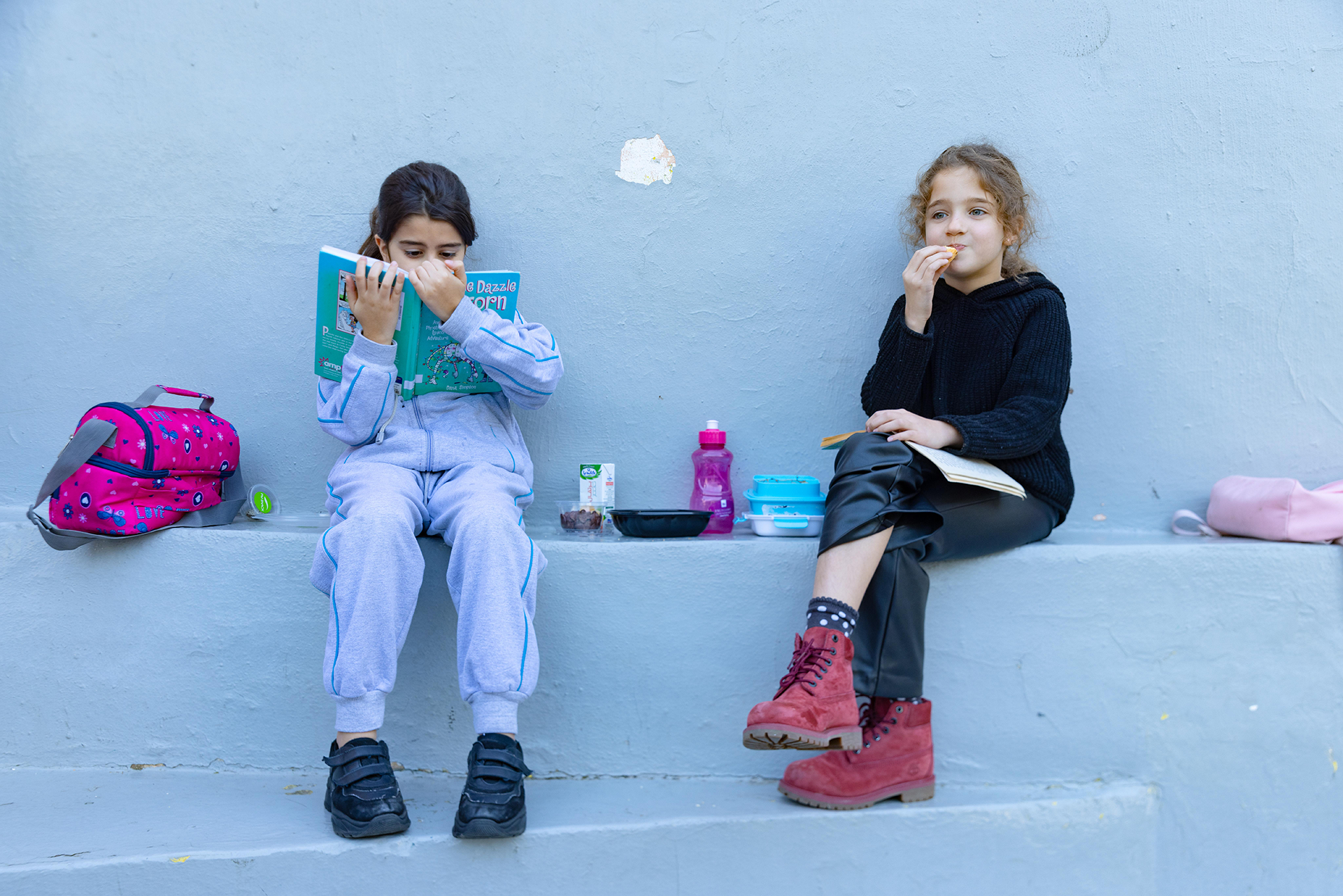
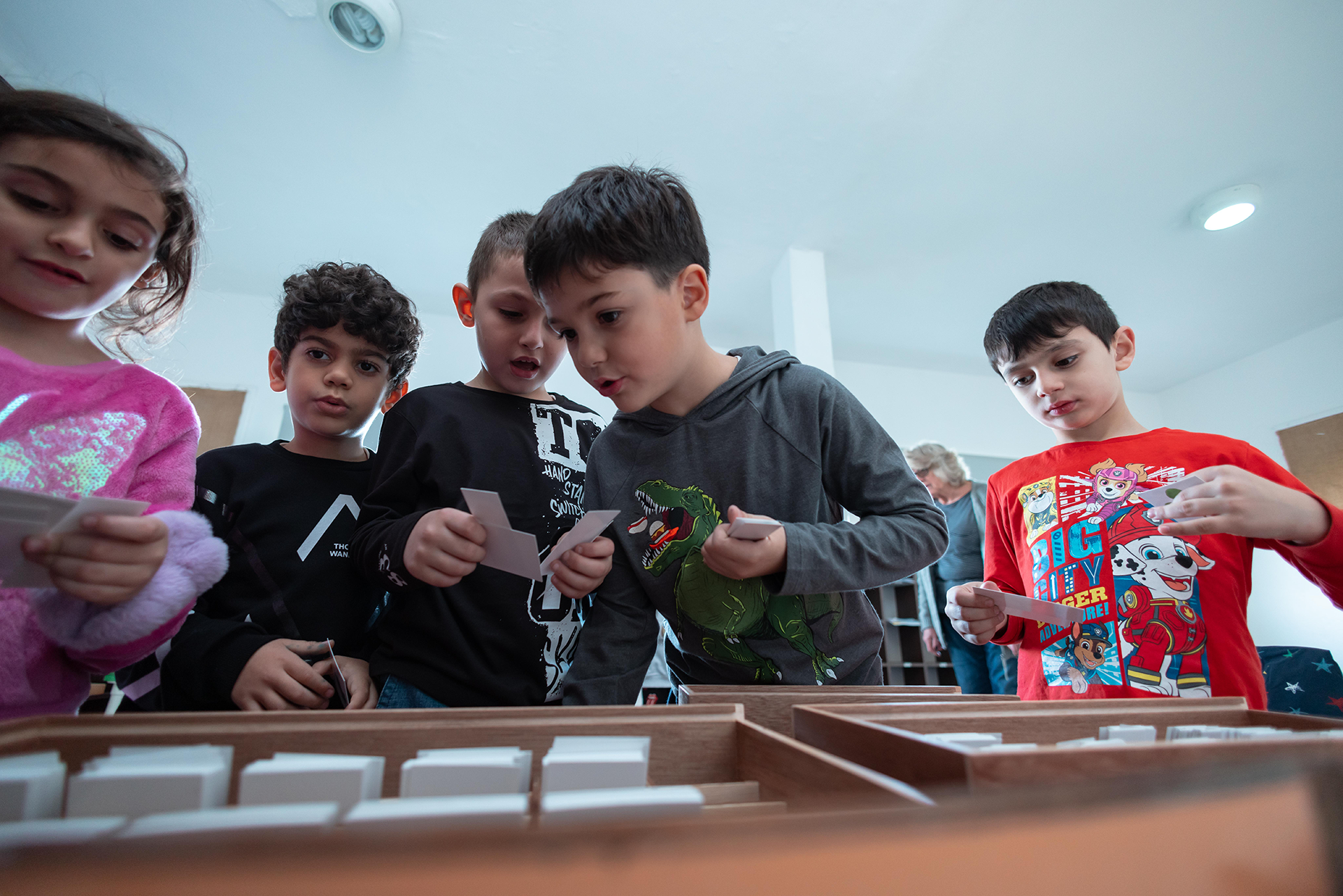
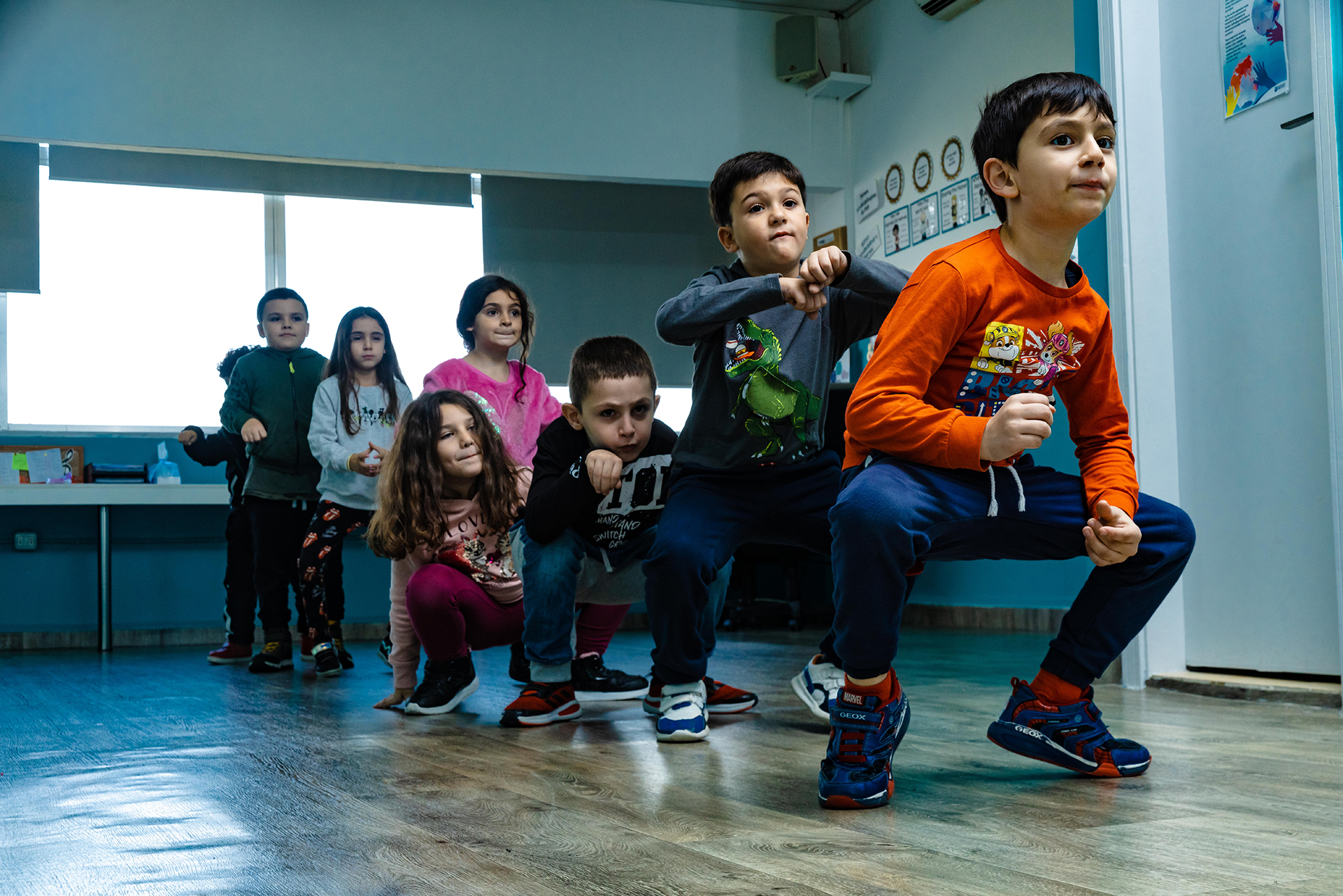
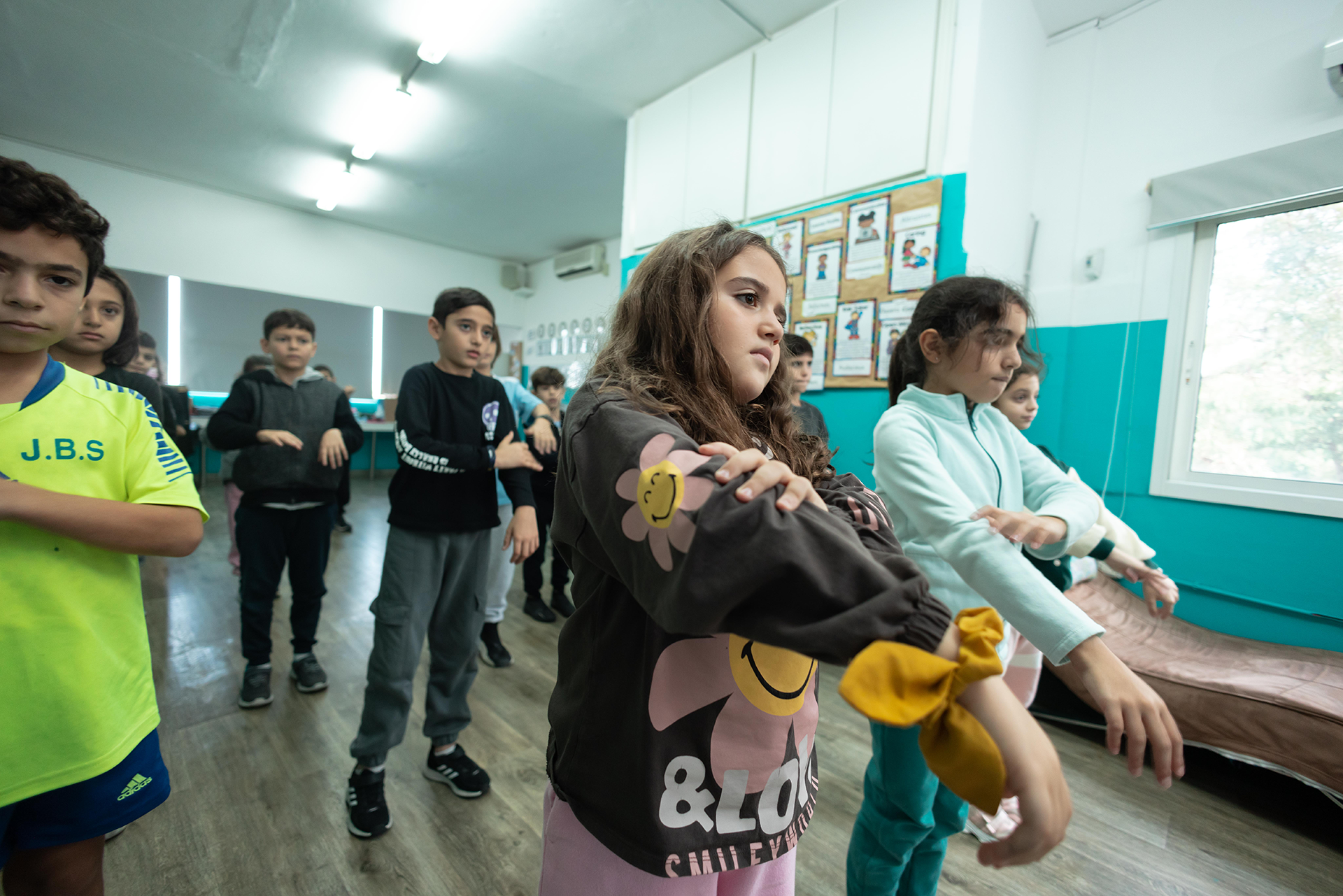

What is the schedule like at our private school in Beirut?
The scheduling of our elementary school program gives attention to different “units of inquiry,” or themes of study across the year. The subjects are given their weight with more time allocation, while still allowing for transdisciplinary instruction, as mentioned above. While there can be fluidity in scheduling with PYP-style learning, students still get exposure to the ‘normal’ subjects that would be expected of any elementary school program. And surely, our school takes into account the need for elementary school students to transition into middle school and high school.
Weekly School Timetable
Elementary School Students
GRADES 1-5
NUMBER OF PERIODS: 7 (40 MINUTES EACH)
NUMBER OF BREAKS: 2 (PER DAY)
TOTAL: 31.8 (HOURS PER WEEK)
ATTENTION!
Our early years program uses a different schedule, but similar subjects. These years cover the Nursery, and two years of Kindergarten (KG1 and KG2). You can read more about our early years program here.
GENERAL RULES AND CONDITIONS
● Students may not leave the school grounds during the day while enrolled in the IB-PYP program, even though the IB high school program does allow students to leave the premises.
● Teachers are given autonomy to structure their class schedules differently, and in coordination with other teachers. Every year, the schedule may be revisited to allow for improvements, or new ways of teaching various ‘cross over’ subjects. However, the allocation of time towards each subject remains the same.
FAQs
How do you ensure students learn enough of each subject, while teaching them with the “trans-disciplinary” method?
As a PYP curriculum executor, we operate with a lead coordinator, who ensures our teaching team is acting in unison with regards to lesson planning, learning progression and consistent assessments. We meet to discuss how the learning outcomes of our program can be acquired by the students. This includes a conversation on the balance of subjects being taught, which fall under a central theme we are exploring. We assess and reflect on the effectiveness of our methods. We will revise if we feel there is a need to ‘switch gears,’ or to put more emphasis on a certain subject.
During grade-level planning meetings, the teachers also plan collective field trips and discuss possible guest speakers we can invite to our school. So, in addition to keeping a good balance of learning subjects, we know what the other classrooms and teachers are doing. And, we’re aware of what may be taught in future grades that children will enter into. This allows us to act as a school, and not as individuals. With this collaborative system, we are able to provide feedback to each other about what we’re teaching, and how.
Does your school offer extracurricular activities?
Yes! We do out-of-school activities, such as a yearly camping trip, starting in Grade 4 and until Grade 5.
We also have in-school activities organized by the P.E. department (such as gymnastics and football). These are in addition to the P.E. learning objectives taught in the regular school schedule.
Our after-school activities are designed for what the students want. We do our best to respond to their needs in this regard.
Are there graduation requirements to get past Grade 5 into the middle school program? If so, what are they?
Students must simply complete all Grade 5 learning outcomes to be able to enter into middle school at Eastwood International School, as well as complete the PYP exhibition requirements.
If my child was in a traditional or local elementary school before, will they be behind if they join the IB Primary Years Program?
Students from other programs will be able to catch up to the IB-PYP program. The PYP is not only a rigorous academic program it’s also a mindset of how students learn. Any student, whether coming from a French school background, an American program or typical Lebanese program is able to join our IB-PYP program, and we will support them however we can with their academics.
Do I have to wear a uniform?
Yes. But don’t worry, our uniforms are comfortable and cool. They are designed by our senior class and updated regularly. Parents are encouraged to purchase a uniform package once their child starts at Eastwood for the first time.

THE IB PROGRAM, IN ENGLISH OR FRENCH:
TWO HYPER-CONNECTED PROGRAMS.
Eastwood offers the PYP in French due to the significance of the French language to Lebanon’s history, culture, and present day affairs, and due to the rise and growth of French on the global stage. Speaking one of the leading languages of business, education, science, technology, commerce and trade is a form of power and access to greater opportunity, and we aim to provide that power and opportunity to students.

